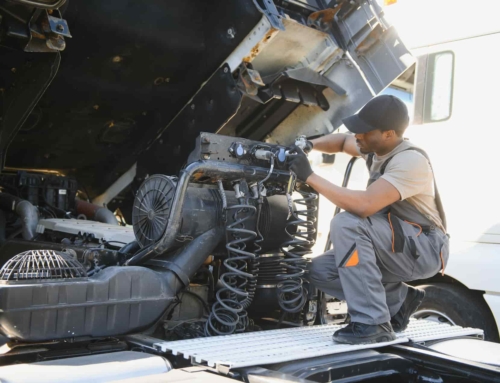You have a unique idea and the necessary skills to bring it to life. You may even have a clever name and an eye-catching logo in mind. However, there are many more hurdles before turning on your “Open for Business” sign.
Research expenses are a vital cost to consider before moving forward with your business. Additionally, familiarising yourself with the starting, ongoing, and hidden costs of opening and maintaining a business is crucial. Understanding this information is essential as you want to avoid unpleasant surprises.
Starting Costs of a Business
Start-up costs surprise many novice entrepreneurs simply because the factors were never considered. The expenses related to starting a business in Australia include but are not limited to,
What are the costs associated with starting a business?
- Business name registration – You will need to decide on the structure of your business and file with the Australian Securities and Investments Commission (ASIC).
- Industry requirements and permits – These will vary based on the type of business you are starting.
- Cost to house your business – You will find a wide range of costs depending on your industry and the space you need.
- Supplies and equipment – These costs are linked to the nature of your company.
- Technology and business software – These costs will span a wide range and depend upon tech’s role in your industry.
- Utility Connections – Companies charge fees to set up services such as electricity, water, and internet.
- Marketing costs – Every business requires marketing as it gets up and running. Avoid the temptation to underspend or overspend here.
- Insurance – Protect your business with appropriate coverage. Certain industries require specific policies for licensing, and accidents happen every day to the most cautious amongst us. It is in your best interest to consult with an insurance specialist to be sure your cover is sufficient.
- Support staff – This will vary with your needs, but this often includes bookkeepers, fulfilment workers, delivery personnel, or office staff.
- Legal Fees – Legal advice and documentation are just parts of what you may need from a legal expert. You will want to ensure that you have everything in perfect order.
How much money is needed to start a business in Australia?
Generally, the average cost of starting a business in Australia is between $3,000 and $5,000. However, the actual amount you need can cost much less than this (sometimes as low as $200) or significantly more ($15,000). The industry you are entering will dictate the exact costs.
How much does an ABN cost?
There is no cost to apply for an Australian Business Number with a paper application or online if you do so directly. Hiring a consultant to file an application on your behalf may incur fees payable to that individual.
Do I need an ABN for a side hustle?
While you may apply for an ABN if you run a side hustle, it is not compulsory. Many businesses feel it lends legitimacy to their company and is helpful for certain tax deductions.
Ongoing Costs of a Business
Regardless of your industry, you will need to meet the ongoing costs of business. Simply put, your ongoing costs are expenditures that are not directly tied to your company’s goods or services. Because these are recurring (often monthly), the amount tends to stay nearly the same.
What are examples of ongoing costs?
- Rent
- Payroll
- Utilities
- Office Supplies
- Bank fees
- Accounting charges
- Cost of marketing
Examples of fixed costs
Fixed costs tend to be ongoing as well. These expenditures are not directly connected to making your goods or services but are necessary.
- Fees for rental equipment
- Association fees
- Licensing fees
Examples of cost of goods sold?
These expenses are tied to producing your inventory or the goods that will be sold. These costs exclude the ongoing and fixed costs of doing business.
- Production materials
- Items purchased for resale
- Packaging
- Shipping
- Direct labour costs
- Sales commissions paid
Hidden Costs that people may not think about
- Compliance – No matter what industry you are a part of, you will likely need to meet some type of regulatory compliance. This cost takes many new business owners by surprise. However, non-compliance can cost you the business you have built and your reputation in the industry. Research the ins and outs of what is required to maintain compliance so you are not caught off guard.
- Accounting and other professional services – Many new business owners start with the idea that every detail of their company must be their responsibility. While it is understandable that business owners may believe they can handle every aspect, eventually, it proves impossible. Determine that you will willingly employ the necessary support staff to help keep your company running instead of running yourself into the ground and trying to do it all. In some cases, the help you need may come in the form of specific software products that efficiently manage many details of your company.
- Equipment breakdowns – Once you have invested in the equipment necessary to operate your company, the last thing you want to think about is the possibility of it breaking down. Unfortunately, even the highest quality and best-maintained gear will not operate forever. Be sure to plan for the possibility of equipment malfunctioning financially. Purchasing commercial property insurance can give you peace of mind that costly repairs will not come out of your pocket.
- Insurance Cover – Often, insurance is an expense business owners do not consider. However, believing your company can get by without coverage is a mistake. You have given your all for the success of your company. Now, you need to ensure that you and your company are protected against unexpected events & risks that threaten to destroy everything you have built. To do this, you will need to look into the kinds of business insurance that are available. Some types of insurance cover, like workers’ compensation are compulsory if you have any employees. Whether you run a mom-and-pop café with a few part-time workers or your sizeable staff creates products that ship worldwide, all Australian States and Territories require workers’ compensation coverage. Not all business insurance cover is a one-size-fits-all proposition. Working with insurance professionals to find the best policies at fair prices is essential.
Being able to control your business costs is critical for your future success. Surrounding yourself with knowledgeable experts is an excellent way to make sure you have what you need at a reasonable price.
To find out more about what the professionals at Grace Insurance can do to get you essential and affordable business insurance, contact us. We will put our years of experience to work for you.








